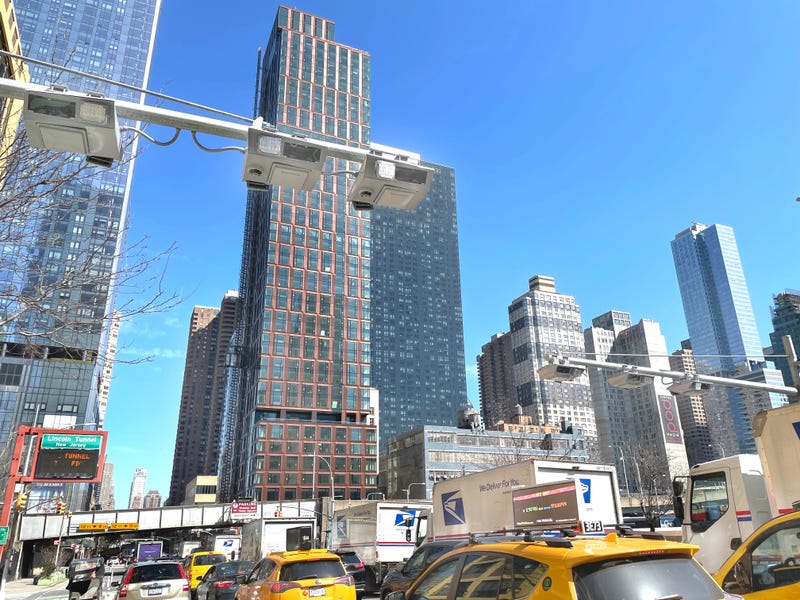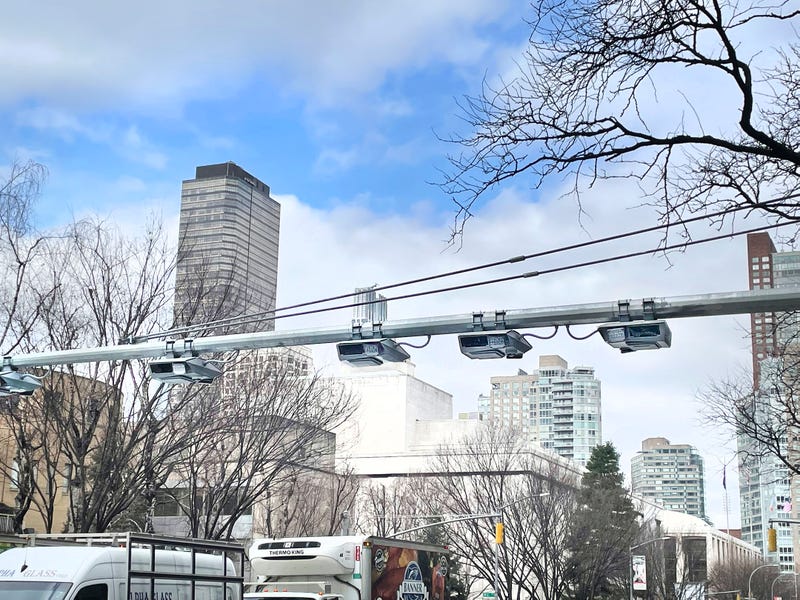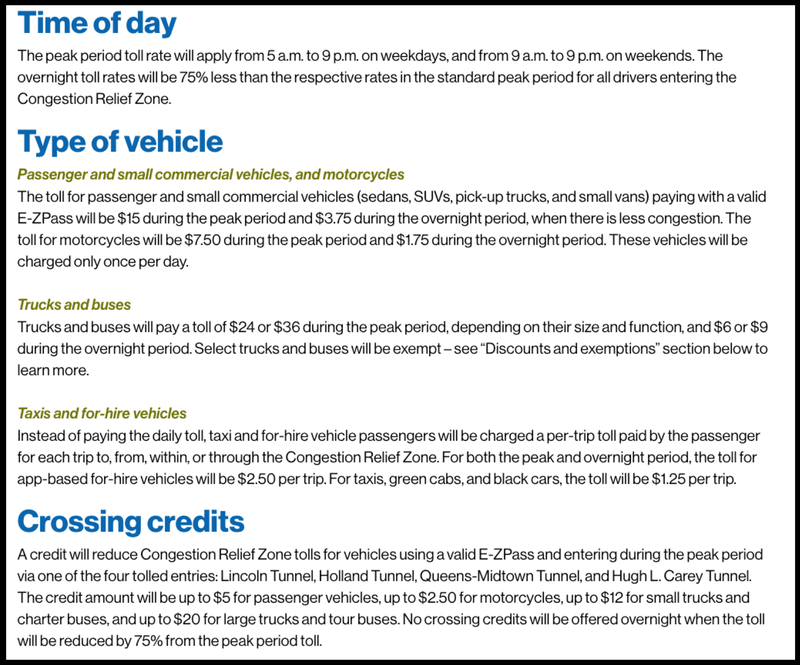
NEW YORK (1010 WINS/WCBS 880) – The MTA announced Friday that the start date of congestion pricing in Manhattan will be Sunday, June 30—one of the final steps towards implementing the first-in-the-nation toll plan.
Implementation will start at midnight that Saturday night going into Sunday. All tolling infrastructure needed for the plan—officially called the Central Business District Tolling Program—has been installed across 108 locations.
The MTA also said it opened an online portal for people to apply for discounts or exemptions to the toll, which will charge most drivers at least $15 daily to enter Manhattan below 60th Street during the daytime.
Some of the exemptions include a free pass for emergency vehicles, specialized city vehicles, and buses with regular public routes or city school contracts. Vehicles carrying disabled people and certain low-income commuters also get a pass. Low-income drivers are eligible for discounts and tax credits. Additional details can be found on the "discount and exemptions" page at MTA.info.

The MTA said the tolling program, which was mandated under a state law passed in 2019, will see New York "joining the global fight against congestion and climate change." The agency said congestion below 60th Street costs the regional economy $20 billion a year and has New Yorkers spending 117 hours a year in gridlock.
MTA Chair Janno Lieber was all smiles as he announced the news Friday. In a statement, he said: "Five years after the legislature made congestion pricing New York State law, and with 4,000 pages of analysis, hundreds of hearings and outreach meetings behind us, New Yorkers are ready for the benefits – less traffic, cleaner air, safer streets and better transit."
The MTA board voted last month to green-light the plan, which had been expected to start in mid-June, despite a barrage of legal challenges. The board brushed off requests for exemptions from more than 100 groups following a two-month public comment period.

The plan has been extremely controversial with many people in the Tri-State, from suburban commuters and hired drivers to small business owners and the state of New Jersey. They have said it's a burden on workers and will increase the price of goods driven into the city.
Supporters have countered that the plan will get more people using public transit, while reducing pollution, speeding up public buses and raising critical funds for the subway system.
Most passenger vehicle drivers will be charged $15 , but those without E-ZPasses—a device that collects toll info remotely—will pay more.
Tolls will vary based on the time of day and the size of the vehicle, ranging from $1.75 for motorcycles crossing overnight to $36 for sightseeing buses and trucks with trailers during the day.
Taxis will charge passengers $1.25 per trip that touches the zone, while app-based rides will charge $2.50.
The overnight period runs from 9 p.m. to 5 a.m. on weekdays, and from 9 p.m. to 9 a.m. on weekends. More info on the program is at MTA.info.
To enter Manhattan, commuters from other states and boroughs already pay around $15 in bridge and tunnel tolls — and the congestion fee will come on top of that.
If the plan continues to survive legal challenges, New York will become the first U.S. city to implement a congestion pricing scheme when implementation begins on June 30.
The Associated Press contributed to this report.
